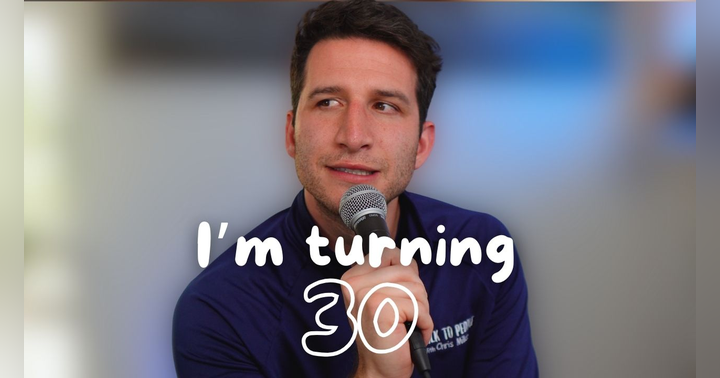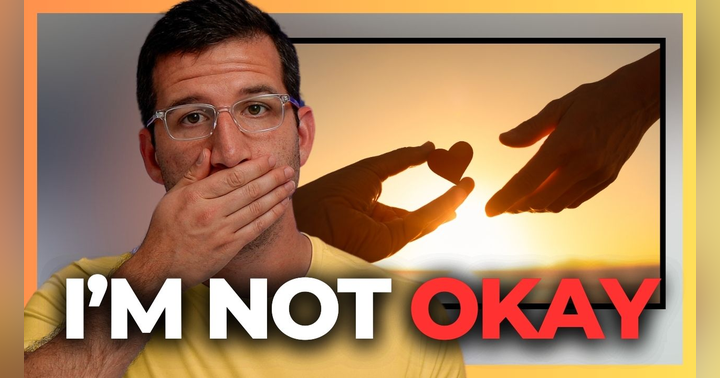A Guide to Talking Politics Without Losing Friends

Navigating political conversations can feel like walking a tightrope. With the presidential election right around the corner, there’s no shortage of passionate discussions and charged opinions. And yet, amidst this divisive season, talking politics with friends can open doors to deeper connections and understanding—if approached thoughtfully.
In this post, inspired by the latest episode of the Talk to People Podcast, I’ll walk you through some tools and techniques to help young adults talk politics without damaging friendships. I sat down with Dr. Alan Louden, a professor emeritus in political communication, who provided some expert advice on navigating these often-challenging conversations.
Why Talk Politics with Friends?
Political discussions often touch on our identities and core values. When we hold back from discussing these topics with friends, we’re potentially withholding important aspects of ourselves and missing opportunities for growth and connection. However, Dr. Louden explains that meaningful political conversations hinge on understanding and empathy, not the quest to “win” an argument.
Understanding the Challenges of Political Conversations
Dr. Louden highlights three types of “conversations” happening at once when we discuss politics:
- What Happened? – These are the factual aspects of the topic, such as recent events or legislation.
- Feelings – This layer is all about emotions and personal reactions, like anger, sadness, or pride.
- Identity – Here, we dig into how politics intertwines with our sense of self, our beliefs, and what we stand for.
These overlapping layers contribute to the intensity of political discussions, often making them emotionally charged.
Tips for Navigating Political Discussions
Here are some practical tips based on Dr. Louden’s insights and my own experiences:
Focus on Understanding, Not Winning
Trying to “win” a political discussion rarely fosters connection. Instead, focus on understanding where your friend is coming from and why they hold certain beliefs.Agree That You Disagree—And Keep Talking
“Agreeing to disagree” is often the end of a conversation, but it doesn’t have to be. As Dr. Louden says, acknowledging disagreement can be the starting point for further discussion. Asking questions like, “Why do you see it that way?” can lead to deeper understanding.Differentiate Between Positions and Interests
Often in political conversations, we get stuck on positions (“I support this candidate” or “I’m for this policy”) rather than exploring interests (the underlying values and reasons for those positions). By digging into interests, we can find common ground more easily.Ask Open-Ended Questions
To create a safe space, ask questions that invite your friend to share their perspective. Instead of “What’s wrong with your view?” ask, “What experiences led you to think this way?”Avoid Asking “Who Did You Vote For?”
Voting is personal. Dr. Louden suggests that rather than asking directly, you create a comfortable environment where people may share this information if they feel inclined. Pressuring someone to disclose their vote can make the conversation confrontational rather than open.Use Empathy and Curiosity to Connect
Even if you disagree, Dr. Louden encourages focusing on what you have in common. Approach political conversations with empathy and curiosity. You’ll often find that political views are a small part of a much bigger picture.
Managing Political Conversations on Social Media
Dr. Louden points out that social media tends to make political conversations more volatile, as tone and intent can easily be misinterpreted. Consider keeping sensitive conversations off social media, where misunderstandings can happen quickly, and instead engage in person or in private.
When to Set Boundaries
If a political discussion with a friend repeatedly turns into conflict, it might be time to establish boundaries. Dr. Louden emphasizes that it’s okay to decide to avoid certain topics if they lead to tension and affect the friendship.
Final Thoughts: Strengthening Connections in Divisive Times
As we face the 2024 presidential election, remember that friendships and community ultimately enrich our lives more than any single political cycle. Political conversations, when approached with respect and empathy, have the potential to deepen friendships, broaden perspectives, and create understanding in times that often feel polarized.
For more insights on how to navigate complex social interactions, make friends, and build stronger connections, check out the Talk to People Podcast on YouTube or Spotify. And remember—life is better when you talk to people.




